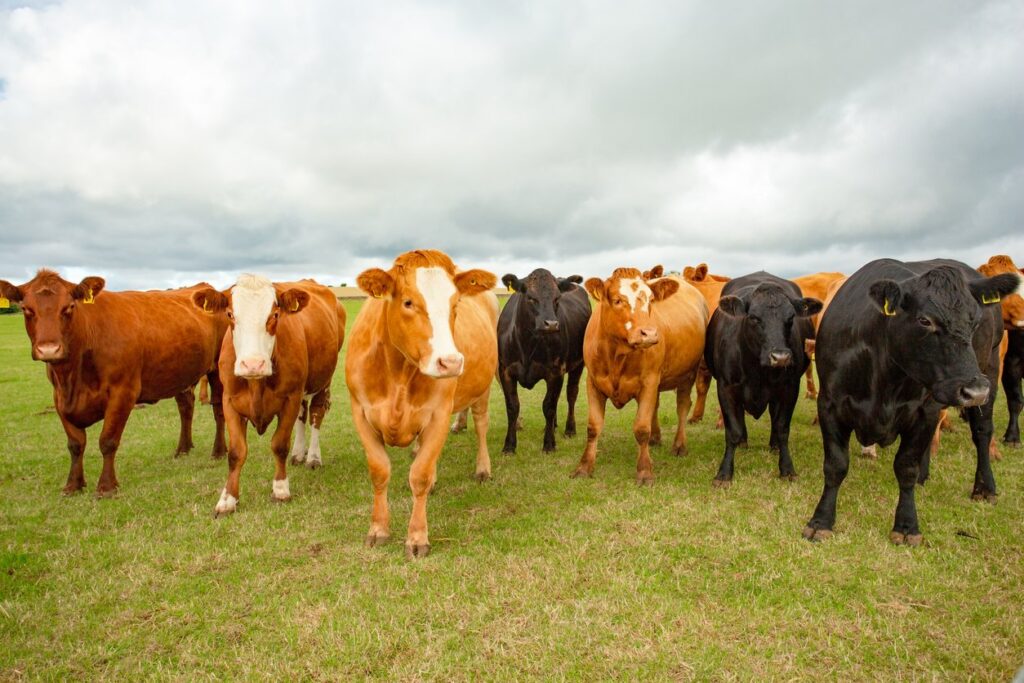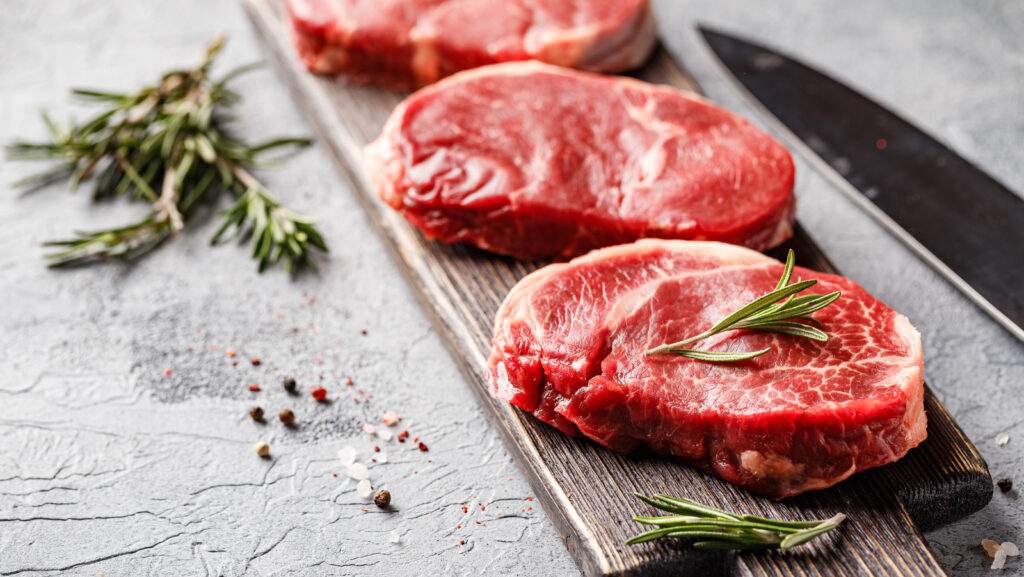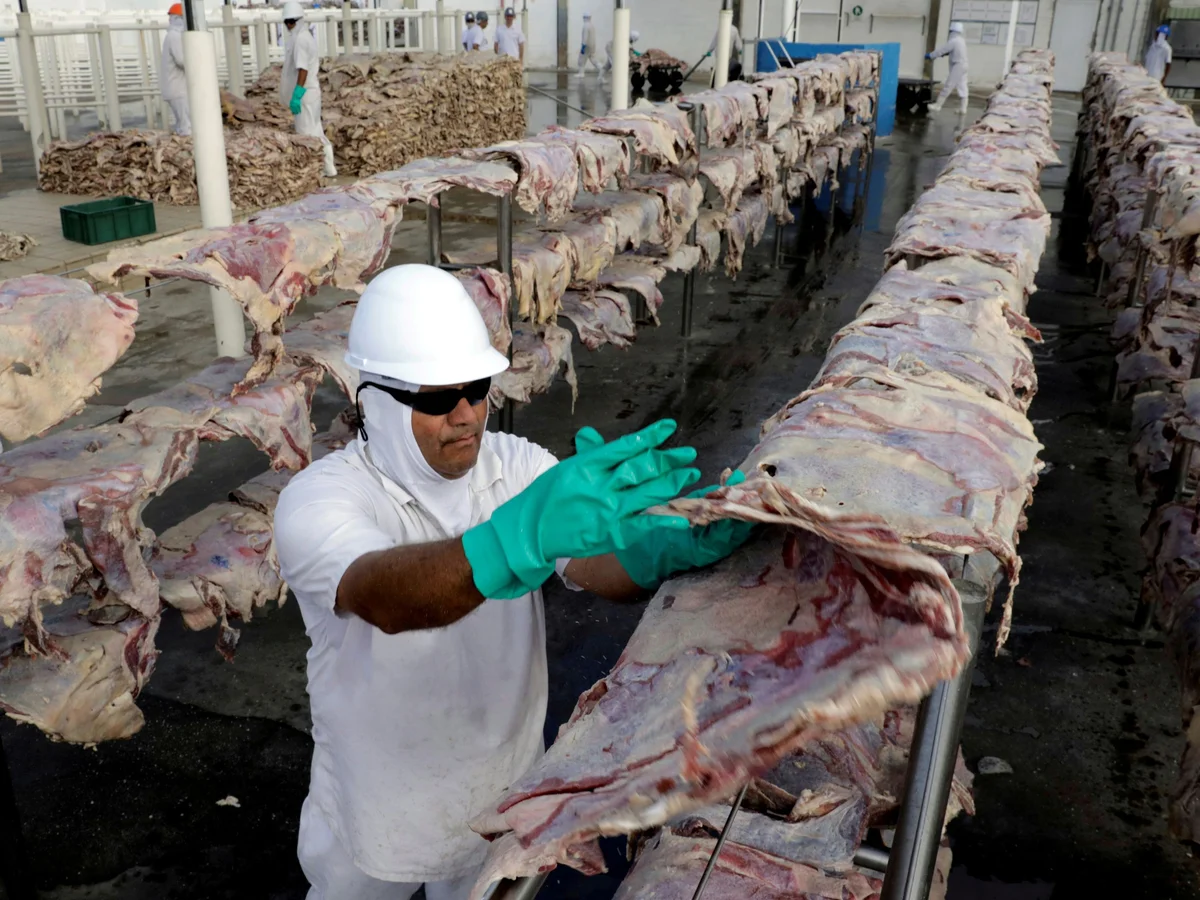Food & Climate
The world’s major meat producers like JBS and Tyson Foods have emissions footprints on a par with some of the world’s fossil fuel companies (oil and gas).
And the greatest contributor to food’s climate gases is the production and consumption of livestock. According to calculations based on IPCC figures and other research, the livestock sector alone may be responsible for around 20% of all climate emissions, according to a report seen by “Food & Climate” platform.
Last year, a survey of scientists and experts by the Harvard Law School indicated that we should be reaching ‘peak meat’ as soon as this year.
While many citizens and consumers may be resistant to shifting their diets away from meat, others are not.
According to Madre Brava’s own research (It is a group of initiatives working on sustainability in all fields), around half of consumers in Germany, France and the UK, and over a third in the US, are open to eating less meat, with many already adopting so-called flexitarian lifestyles.
With more alternatives to meat readily available and improving in taste and affordability, it should be easier than ever to help consumers reduce the amount of animal-derived protein they consume, according to “Climate change news”.
Confrontation with meat producers at COP29
Meat producers have faced something extraordinary recently. In November 2024, deep in the corridors of the climate change COP 29 in Baku, the True Animal Protein Price (TAPP) Coalition worked tirelessly to collect signatures on a document that many observers may have considered quixotic. The document called on states to commit to ‘transitioning away from animal protein overconsumption’ through implementing greenhouse gas emission pricing in agri-food systems.
States had little interest in committing to such a transition. When they spoke of ‘transitioning away’, they meant fossil fuels, not meat. The closing document of the 2023 COP had called on states to contribute to ‘Transitioning away from fossil fuels in energy systems’ to achieve net zero by 2050. In Baku, states were bogged down in discussions about whether or not to reaffirm this ambition. For most states, the proposal to transition away from fossil fuels and animal protein was over the top.
Nonetheless, there are good reasons for ‘transitioning away’ from overconsumption of animal protein, particularly meat. Leaving aside whether there is overconsumption of meat in the sense that most people eat more meat than they need, there certainly is overconsumption in terms of externalities.

The livestock sector contributes approximately 14.5% of global human-caused greenhouse gas (GHG) emissions, driven by methane emissions from cows, land-use changes, and feed production. All (increasingly hypothetical) scenarios for keeping the 1.5°C and even the 2.0°C warming targets within reach require significant reductions of such emissions.
This is particularly important because methane reductions have a much greater potential for quick wins than reductions of fossil fuels. As methane has a shorter atmospheric lifespan than carbon dioxide, cutting methane emissions can relatively quickly lower atmospheric concentrations and slow global warming.
Meat overconsumption
Reducing meat overconsumption would serve other key global public interests. On 17 December, the Intergovernmental Platform on Biodiversity and Ecosystem Services (IPBES) published the Nexus report, concluding that reducing meat overconsumption would simultaneously support 6 sustainable development goals.
It can bring significant global health benefits by lowering the rate of antibiotic resistance and non-communicable disease in humans (as underlined in the FAO’s recent The State of Food and Agriculture 2024) and help to protect biodiversity (30% of all land on earth is used for pastures and feeds).
‘Transitioning away’ does not mean ending. Also, the commitment of COP 28 to transitioning away from fossil fuels to achieve net zero by 2050 is not a commitment to phase out fossil fuels entirely – if that were even possible at all. That holds even more for transitioning away from overconsumption of meat. Such a transition will never be a phasing out.

Any scenario where large parts of the world’s population would live without consuming meat is a fantasy.
What transitioning away from overconsumption should mean is a gradual shift to replacing animal protein with plant-based proteins on a scale where the current adverse effects on the climate, biodiversity, global health and animal welfare are substantially reduced, according to an article by André Nolkamper, Professor of International Law and Sustainability at the University of Amsterdam and a member of the Institute of International Law, published on the website: “EJIL: TALK“.

